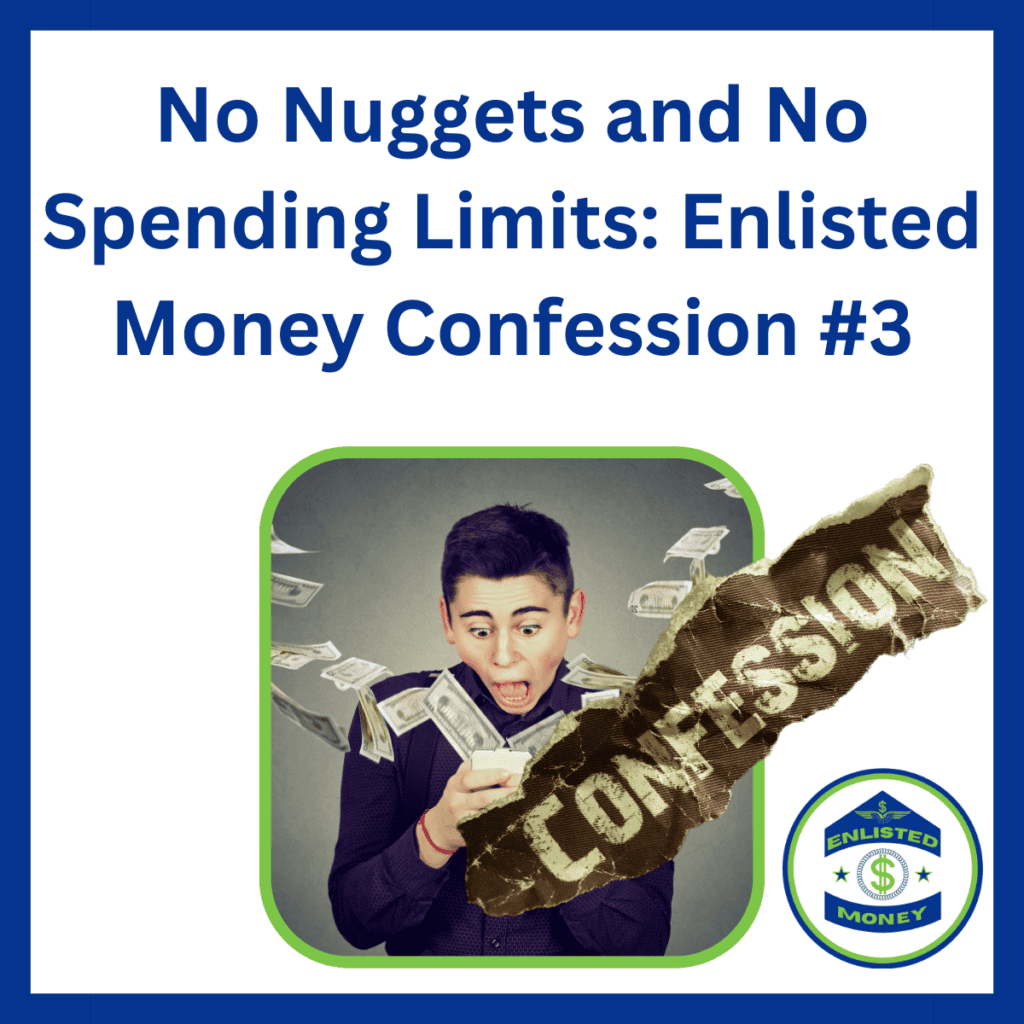
In this Enlisted Money Confession, we get to explore some of the deeper meanings and money scripts behind our financial habits. I feel like this will resonate with many other enlisted military members. It’s a conversation that comes up quite a bit when we start talking about money – the lack of money when we were growing up.
Here’s their story:
Spend While We Could
Growing up poor and missing out on all the experiences my friends all seemed to be having, I subconsciously developed some bad money habits. The answer when I asked for McDonald’s or a small toy or candy most of the time was, “not right now, we don’t have any money for that.” So, in my kid brain, that meant when we had money, spend while we could.
That transferred to adult life. So, my confession is I still fight (and lose) the urge to splurge on unplanned luxuries that we CAN afford but are out of our planned budget. Adulting isn’t fun, but the vacation we saved for without pulling from our long-term savings account sure is!
***Break***
Enlisted Money Response
Oh boy, this one really hits home! Thanks so much for sharing! It’s always interesting to see how experiences and feelings shape our money habits and money scripts in adulthood.
My wife and I are also pretty guilty of just delaying a purchase. We joke about how often we catch ourselves saying, “Not today, maybe tomorrow.” The underlying, maybe cruel joke is that the answer is always tomorrow.
It’s easy to look back and see how being told no and feeling left out could make you want to reverse that in adulthood. I’m a natural spender and have fought the same issues myself. I want it, I’m going to buy it and “figure it out” later. That’s all fine and dandy until you reach the end of the road. You can only defer paying off the credit card for so long.
A Constant Struggle
That’s awesome you’re able to reframe your newfound restraint as a way to build up money for vacations. This opens up a very important conversation about values expressed through spending. We all have a finite number of dollars at any given time. Each yes today creates a no tomorrow.
The good news is that you can slowly reprogram yourself to delay or eliminate some purchases today so you can have more of the experiences you really want in life. I think there’s a delicate balance between daily spending and single, larger purchases like vacations.
Kids Understand More Than We Think
If we always say no to all the little things, but don’t reframe that as a strategy to deliver a bigger yes later on, it can still be damaging to a young person (or adults). We’re not perfect, but the conversations I’ve been having with my son around money have been both rewarding and fascinating to me. Children pick up and internalize way more about money than we might think. They will shape their opinions, feelings, and habits around money starting early on.
I think a lot about how to help teach my son about money. Ultimately, it starts with how my wife and I interact with money. He sees what we’re spending money on. Now he gets to spend his own money too. Each interaction with money can be a teachable moment. However, not every moment should be about money either.
Some Favorite Resources
If you want a great primer on money scripts and how our money behaviors can affect us, you should try to find a copy of The Financial Wisdom of Ebeneezer Scrooge. It’s a short read, but it’s a great twist on an old classic tale.
Another book I’d recommend is Raising Your Money-Savvy Family For Next Generation Financial Independence by Doug Nordman and Carol Pittner. Both Doug and Carol have served in the military and are some of the smartest people with money you’ll find. Their book is a great format because it includes both the parental strategy and intent as well as the child’s feelings and responses. They’ve also done several interviews on podcasts if you’d prefer to listen to the overview first.
Get Your Own Spending Under Control
Regardless if you have children yet or not, the point is this: you can decide to make changes in your financial life. You don’t have to just accept that you’re a spender or “bad with money.” Just like learning to walk, ride a bicycle, or rebuild a helicopter, you have to start somewhere.
Create an intentional plan, get on a budget, and start spending intentionally. Check out my enlisted money resources page for other helpful links, templates, and other information. If you don’t take control of your finances, they’ll take control of you.
